Pro-democracy protesters in Yemen have shown their determination for real change by rejecting a proposal that would allow hated President Ali Abdullah Saleh to leave power on his own terms and escape prosecution for his crimes.
In the face of ongoing repression, the opposition rejected a proposal from the Gulf Cooperation Council (GCC) and maintained their demand that Saleh leave immediately, Al Jazeera said on April 11.
-
-
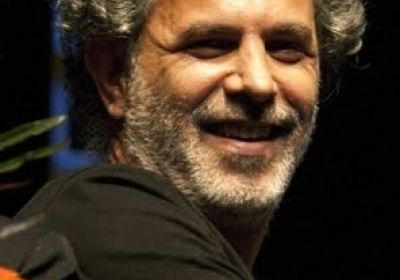 A life dedicated to creative non-violent resistance against the Israeli occupation of Palestine was cut short when Juliano Mer-Khamis was shot dead by unknown masked gunman in the West Bank town of Jenin on April 4. Mer-Khamis was an Israeli citizen, born to a Jewish mother and a Palestinian Christian father. In 2009, Mer-Khamis told Israeli army radio: “I am 100% Palestinian and 100% Jewish.” At the time of his death, Mer-Khamis was just 52-years-old. He was a father and a husband.
A life dedicated to creative non-violent resistance against the Israeli occupation of Palestine was cut short when Juliano Mer-Khamis was shot dead by unknown masked gunman in the West Bank town of Jenin on April 4. Mer-Khamis was an Israeli citizen, born to a Jewish mother and a Palestinian Christian father. In 2009, Mer-Khamis told Israeli army radio: “I am 100% Palestinian and 100% Jewish.” At the time of his death, Mer-Khamis was just 52-years-old. He was a father and a husband. -
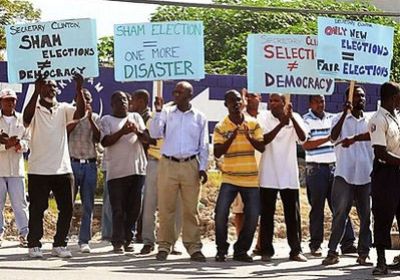 Haiti finds itself with a president-elect with ties to the extreme right — thanks to a concerted effort by foreign powers to continue thwarting the social justice aspirations of the Haitian people. President-elect Michel Martelly is closely associated with the forces that overthrew elected governments in 1991 and 2004. He told Canadian Broadcasting Corporation (CBC) Radio’s The Current on April 7 that Haiti has been “going in the wrong direction for the last 25 years”.
Haiti finds itself with a president-elect with ties to the extreme right — thanks to a concerted effort by foreign powers to continue thwarting the social justice aspirations of the Haitian people. President-elect Michel Martelly is closely associated with the forces that overthrew elected governments in 1991 and 2004. He told Canadian Broadcasting Corporation (CBC) Radio’s The Current on April 7 that Haiti has been “going in the wrong direction for the last 25 years”. -
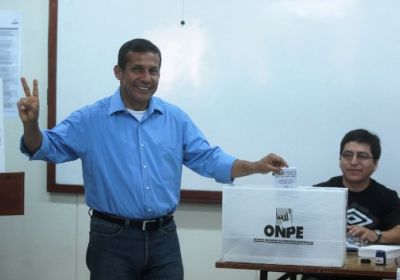 Peruvians went to the polls to elect a new president on April 10. In a first round result reminiscent of the 2006 election, the electorate has sent the previously languishing “left-nationalist” candidate Ollanta Humala (of the Gana Peru alliance) through to the presidential runoff on June 5. As in 2006, Humala will face a candidate representing elite interests: Keiko Fujimori, the daughter of ex-president and architect of Peru’s neoliberal development model, Alberto Fujimori.
Peruvians went to the polls to elect a new president on April 10. In a first round result reminiscent of the 2006 election, the electorate has sent the previously languishing “left-nationalist” candidate Ollanta Humala (of the Gana Peru alliance) through to the presidential runoff on June 5. As in 2006, Humala will face a candidate representing elite interests: Keiko Fujimori, the daughter of ex-president and architect of Peru’s neoliberal development model, Alberto Fujimori. -
The Bahraini government has ordered the dissolution of two opposition political parties. The move is part of its crackdown against the pro-democracy movement that broke out in February. The al-Wefaq and al-Amal parties were ordered to dissolve for “threatening peace”. The order is in response to their involvement in the protests that called for the removal of the Khalifah royal family, which has ruled the country for more than 200 years, the April 14 Washington Post said.
-
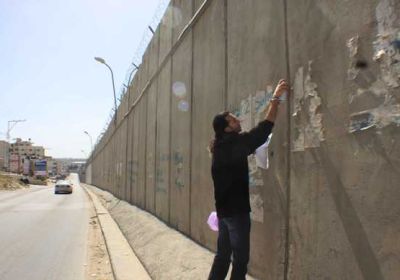 Much of the hysteria surrounding the support of Sydney’s Marrickville Council for boycott, divestment and sanctions (BDS) against Israel has focused on the comparison made by the global BDS campaign with the former apartheid system in South Africa. Pro-Israel politicians and propagandists are quite aware of the power of the comparison. By describing a system where one part of the population has democracy and another doesn’t, it takes away Israel’s claim to legitimacy as a “Jewish democracy”.
Much of the hysteria surrounding the support of Sydney’s Marrickville Council for boycott, divestment and sanctions (BDS) against Israel has focused on the comparison made by the global BDS campaign with the former apartheid system in South Africa. Pro-Israel politicians and propagandists are quite aware of the power of the comparison. By describing a system where one part of the population has democracy and another doesn’t, it takes away Israel’s claim to legitimacy as a “Jewish democracy”. -
About 15,000 people attended the “No Nukes” protest in the central Tokyo district of Koenji on April 10. The rally called for assistance to those affected by the March earthquake and tsunami disaster, and for an end to nuclear power. Organisers said more than 1.23 million yen (A$14,000) had been raised for those affected by the disaster. About 2500 people joined a separate rally in another part of the city calling for the Hamaoka nuclear plant in Shizuoka to be switched off. The Hamaoka plant is on a fault line considered likely to be affected by future quakes.
-
BP has asked United States regulators for permission to resume drilling in the Gulf of Mexico, the New York Times said on April 3. The request comes less than a year after the devastating oil spill in the gulf, caused by an explosion in BP’s Deepwater Horizon rig in which 11 workers died. The NYT said: “BP is seeking permission to continue drilling at 10 existing deepwater production and development wells in the region in July in exchange for adhering to stricter safety and supervisory rules, said one of the officials.
-
 “As Palestinians were preparing for their weekend this Thursday afternoon,” ElectronicIntifada.net said on April 7, “all of a sudden barrages of Israeli artillery fire and air raids by warplanes struck several regions of the Gaza Strip”. “Five Palestinians were killed and about thirty more injured. Israeli shells struck farm land, homes, a mosque and an ambulance.” Israel has threatened to escalate its military assault on the Gaza Strip. ElectronicIntifada.net said on April 4 that more than 20 Palestinians had been killed by Israeli attacks since the start of March.
“As Palestinians were preparing for their weekend this Thursday afternoon,” ElectronicIntifada.net said on April 7, “all of a sudden barrages of Israeli artillery fire and air raids by warplanes struck several regions of the Gaza Strip”. “Five Palestinians were killed and about thirty more injured. Israeli shells struck farm land, homes, a mosque and an ambulance.” Israel has threatened to escalate its military assault on the Gaza Strip. ElectronicIntifada.net said on April 4 that more than 20 Palestinians had been killed by Israeli attacks since the start of March. -
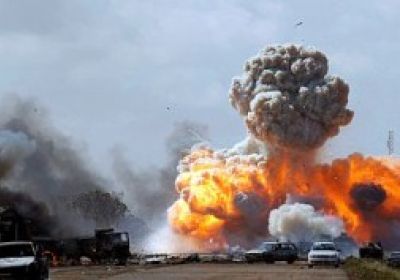 We now know what Washington’s model is for the Middle East, in its most attractive guise. In answer to Egypt’s Tahrir Square uprising, they have smoking craters filled with the charred remains of rebels, conscript soldiers, civilians and other blameless people who must have seen the joy in Egypt and Tunisia and wished it for themselves. In answer to the turbulent, democratic republic, with its tumult of leftist, Nasserist, Islamist and liberal currents, they offer a prolonged civil war at best, culminating in a settlement with Muammar Gaddafi’s son Saif and his sibling.
We now know what Washington’s model is for the Middle East, in its most attractive guise. In answer to Egypt’s Tahrir Square uprising, they have smoking craters filled with the charred remains of rebels, conscript soldiers, civilians and other blameless people who must have seen the joy in Egypt and Tunisia and wished it for themselves. In answer to the turbulent, democratic republic, with its tumult of leftist, Nasserist, Islamist and liberal currents, they offer a prolonged civil war at best, culminating in a settlement with Muammar Gaddafi’s son Saif and his sibling. -
 Cote D’Ivoire (Ivory Coast) has been caught up in an increasingly violent conflict after the West African nation’s November 28 elections ended with the incumbent Laurent Gbagbo and his main opponent Alassane Ouattara both claiming victory. Ivory Coast is wracked by an armed conflict between the Ivory Coast army and rebel forces allied to Ouattara. Both sides have been accused of human rights abuses.
Cote D’Ivoire (Ivory Coast) has been caught up in an increasingly violent conflict after the West African nation’s November 28 elections ended with the incumbent Laurent Gbagbo and his main opponent Alassane Ouattara both claiming victory. Ivory Coast is wracked by an armed conflict between the Ivory Coast army and rebel forces allied to Ouattara. Both sides have been accused of human rights abuses. -
“There’s no reason why technologically we can’t employ nuclear energy in a safe and effective way,” United States President Barack Obama told a group gathered at a town meeting in New Orleans in October 2009. “Japan does it and France does it, and it doesn't have greenhouse gas emissions, so it would be stupid for us not to do that in a much more effective way” You might think after the nuclear meltdown in Fukushima that Obama would have a reason to back off his support of nuclear energy as a new “clean” energy alternative.